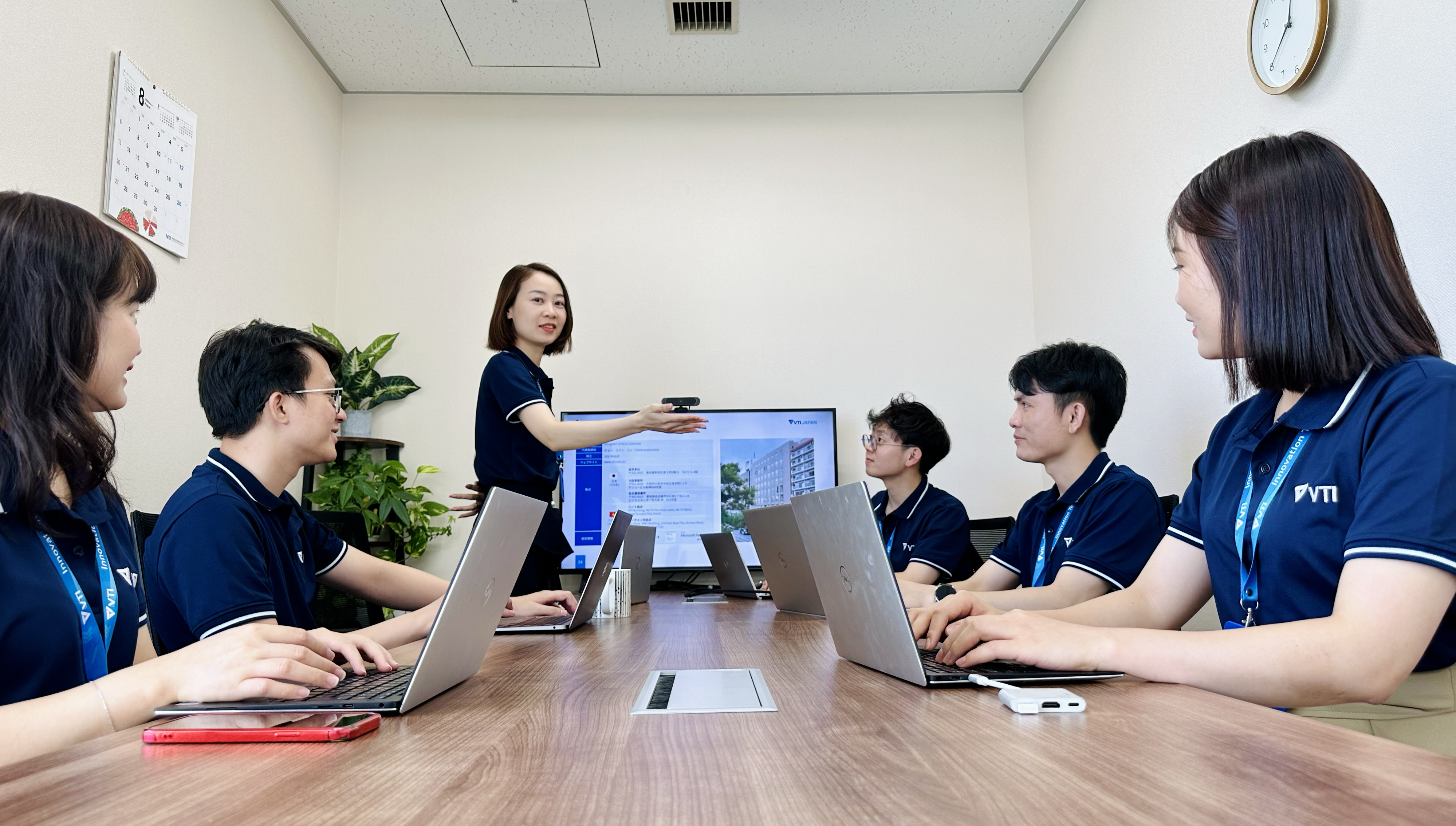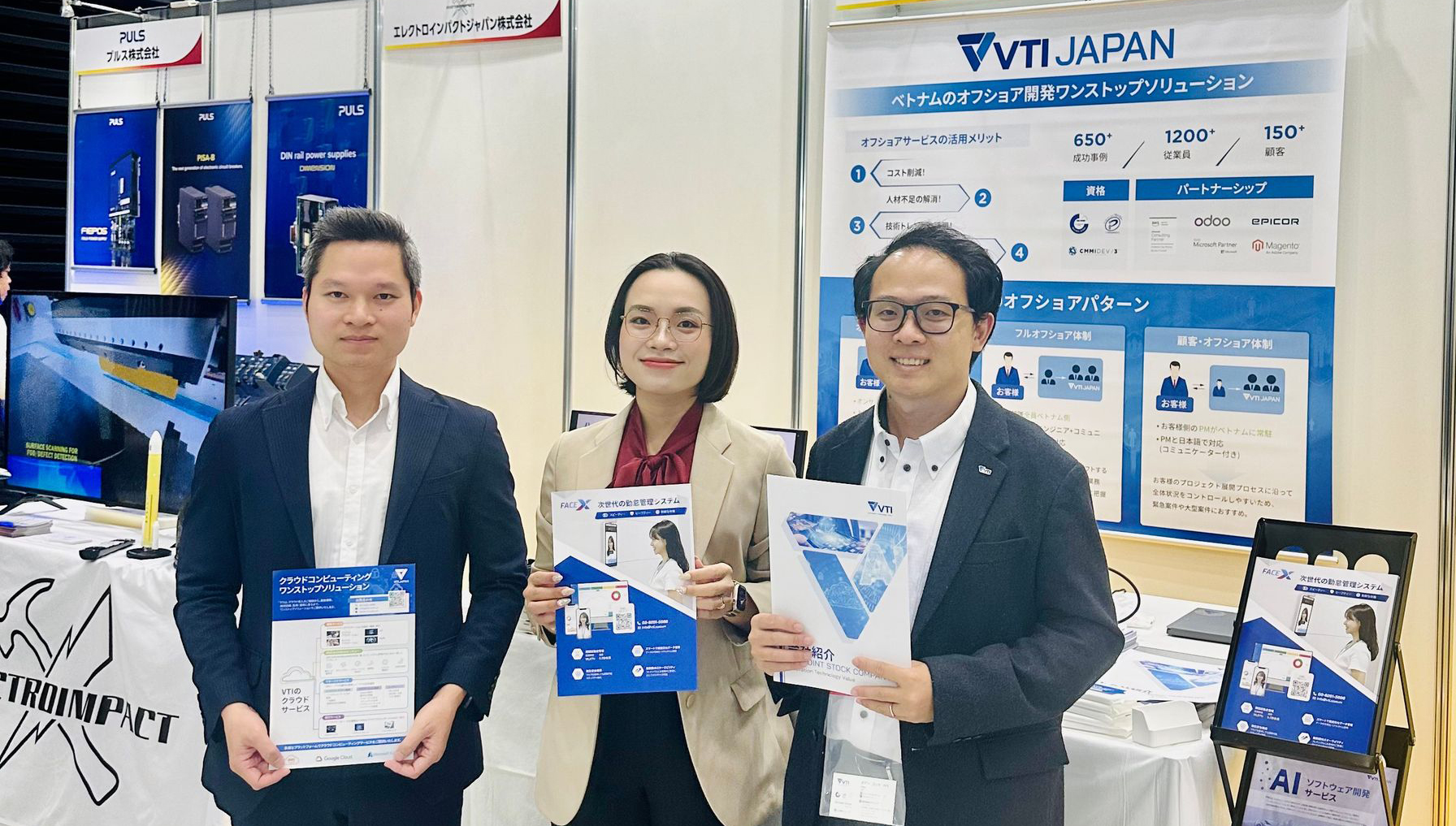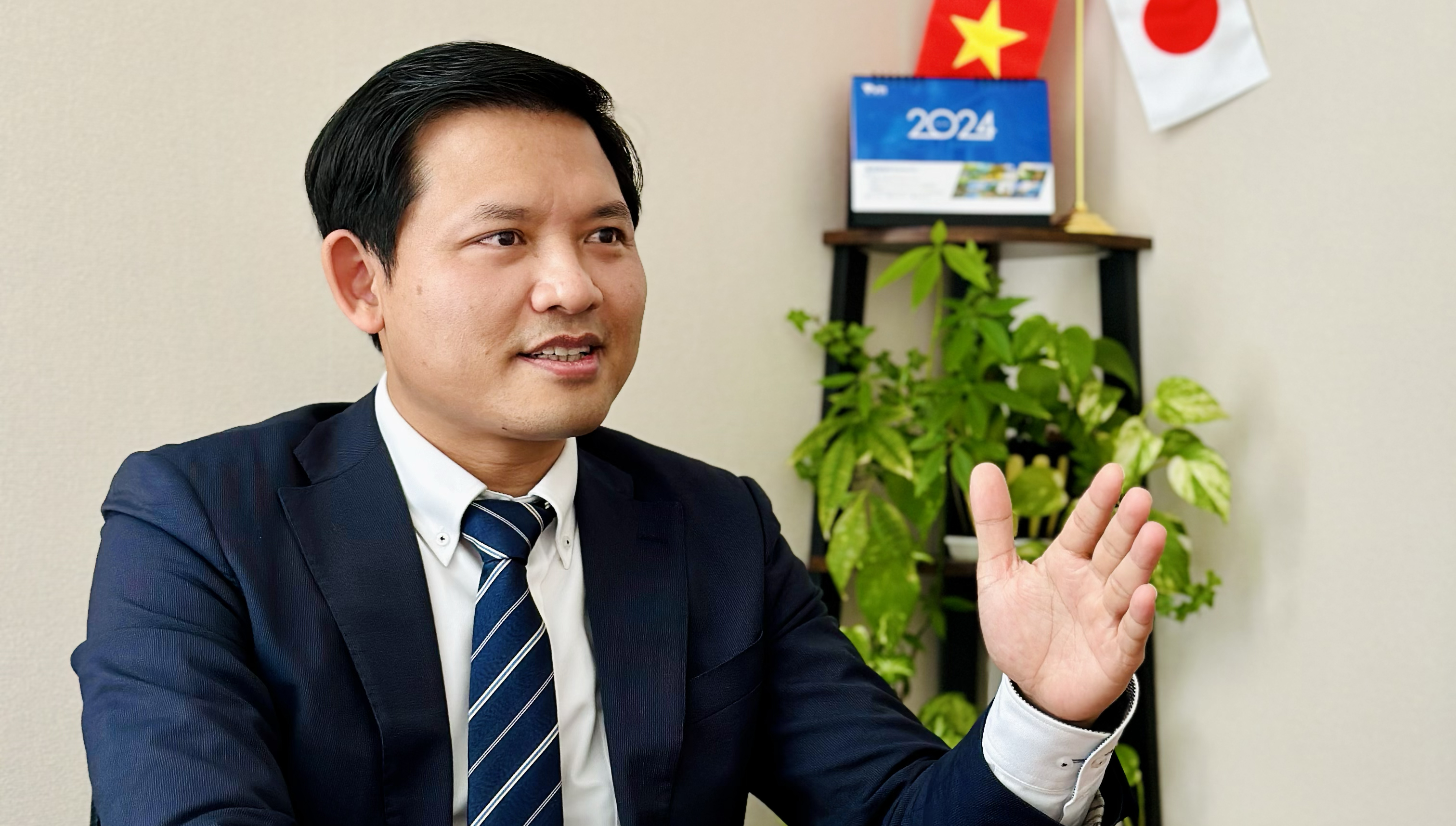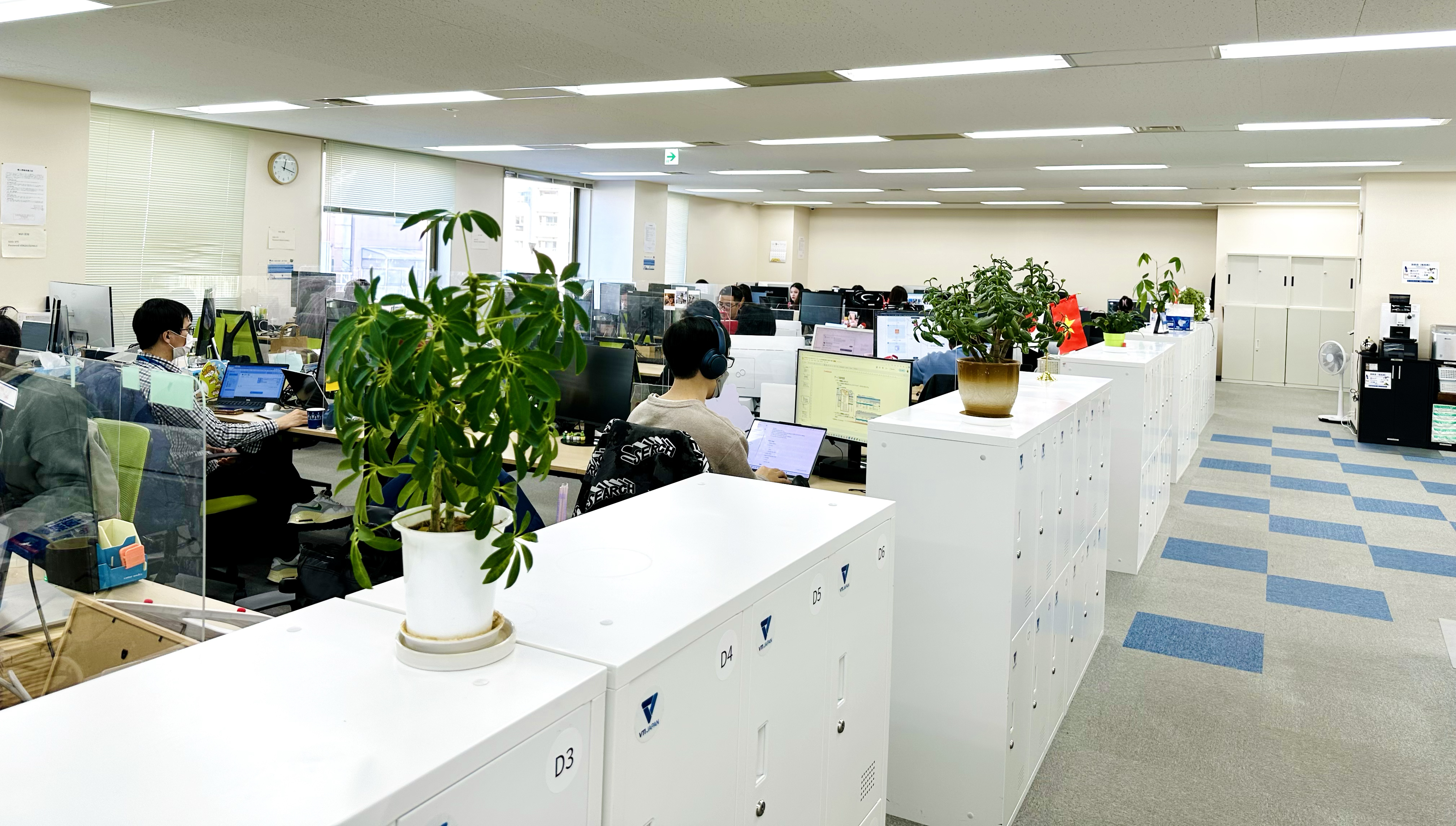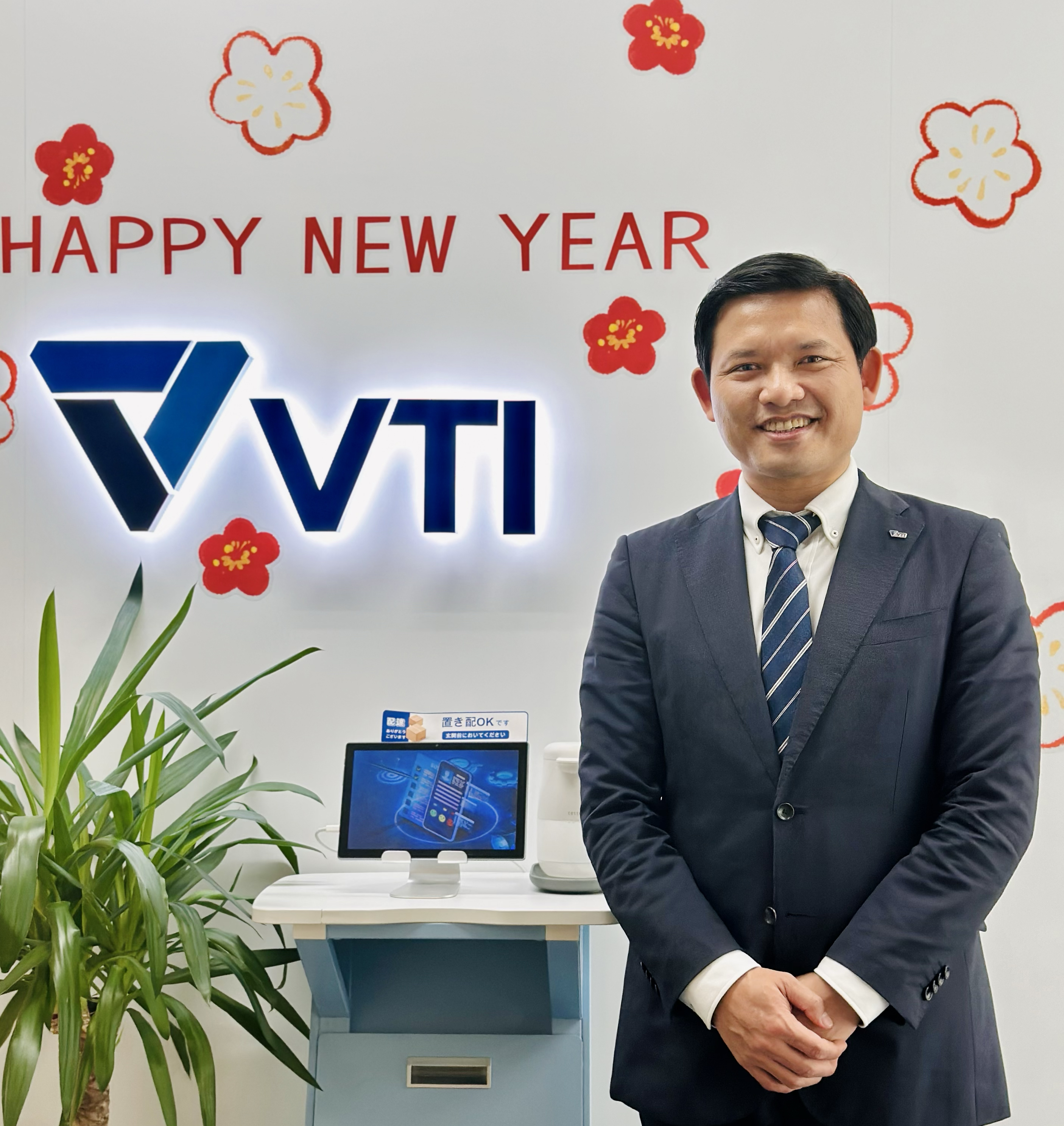Aiming to solve the shortage of IT professionals in Japan
Nguyen Hai Duong
COO, VTI Japan
- TOP
- INTERVIEWS
- Aiming to solve the shortage of IT professionals in Japan
Vietnam's emphasis on science and engineering education
Q. Could you first tell us about the business activities of VTI Japan?
VTI is an IT company headquartered in Hanoi, Vietnam. VTI specializes in software development and the sale of proprietary software solutions. The company has around 1,250 employees in total.
VTI was established in 2017, but since many of our clients were Japanese manufacturing companies, we set up a Japanese corporation in 2018. The Japanese branch has approximately 130 staff members, primarily Vietnamese engineers, but also includes Japanese staff.
Many of our Vietnamese staff have either graduated from Japanese universities or have over five years of experience working with Japanese companies. They are excellent team members with strong communication skills in Japanese. Primary responsibilities in our Japanese branch include sales, requirements definition, and design, while the development work occurs in Vietnam.
Q. Vietnam has seen a surge in IT companies like yours. What do you think has contributed to this growth?
Historically, Vietnam's economy was predominantly agricultural, which resulted in slower economic development. In response, the government adopted a national strategy and focused on the education of science and engineering students. Taking inspiration from India, these efforts aim to bolster the growth of IT companies. Furthermore, the IT sector benefits from favorable tax policies, creating an entrepreneur-friendly environment. Notably, Japan's support in developing IT infrastructure has also played a significant role.
Focusing on Nagoya, a hub for major manufacturing industries, with support from the city of Nagoya
Q. Can you tell us about the establishment of your Nagoya office?
We established our Nagoya office in May 2023. Our goal was to expand our client base, particularly in the manufacturing sector, and Nagoya, being a hub for major manufacturing industries, was an ideal location. Currently, it mainly serves as a sales office, with a few staff members consistently based there.
Q. Did you receive any support from the government in establishing your Nagoya office?
Yes, we received substantial support, including subsidies for office rent and assistance with exhibition participation. Originally, we were already considering establishing a base, but the availability of such support programs accelerated our decision.
Last year, we participated in Messe Nagoya, where Mayor Kawamura of Nagoya City visited our booth. At the event, we were able to approach over 50 companies, and we have progressed to more concrete proposals with several of them.
Q. Mr. Duong, do you often visit Nagoya as well?
I majored in IT at a university in Vietnam and have been involved with Japanese companies since I started working for a Vietnamese company. I've been living in Japan since 2006.
While our main office is in Tokyo, Nagoya is a crucial area for us, home to many major clients, so I visit several times a month. It's a great place with delicious food. My favorites are unadon (eel bowl), miso katsu (pork cutlet with miso sauce), and miso nikomi udon (udon noodles stewed in miso broth).
I also visited the Nagoya City Science Museum with my children and found Nagoya to be a very family-friendly city.
Japan shares many similarities with Vietnam, making it a comfortable place for Vietnamese people
Q. Having lived in Japan for a long time, what is your perspective on the country for Vietnamese people?
Japan is a very livable country. The transportation infrastructure is well-developed, and the advantage of having convenience stores everywhere is a significant plus.
I find Japan and Vietnam quite similar. We share aspects of food culture, like using chopsticks to eat rice, and both countries have been influenced by China. Vietnam used to use Chinese characters, so there's a similarity in thought patterns as well.
Of course, Japan has experienced earlier economic development and is a more mature country, so everything is well-established here. Vietnam is still developing, so what's ordinary in Japan isn't necessarily the norm in Vietnam. Initially, this difference led to some confusion in my work, but over time, I've been able to adapt and gain the trust of our clients.
Addressing Japan's shortage of IT talent and enhancing sales of our solutions
Q. Finally, could you share your future business prospects?
As new system development progresses and system aging continues, Japan will increasingly need more IT professionals. At VTI, we want to help address this shortage of IT talent in Japan. Our goal is to assemble a team of exceptional talent and earn even greater trust from Japanese companies.
Additionally, we plan to put more effort into our developed solutions. We are handling a wide range of areas with our developed products, including the MES-X production management system (manufacturing execution management, warehouse management, maintenance management, and quality control), retail industry-related solutions, generative AI, and data analysis. We aim to further enhance our solution deployment.

